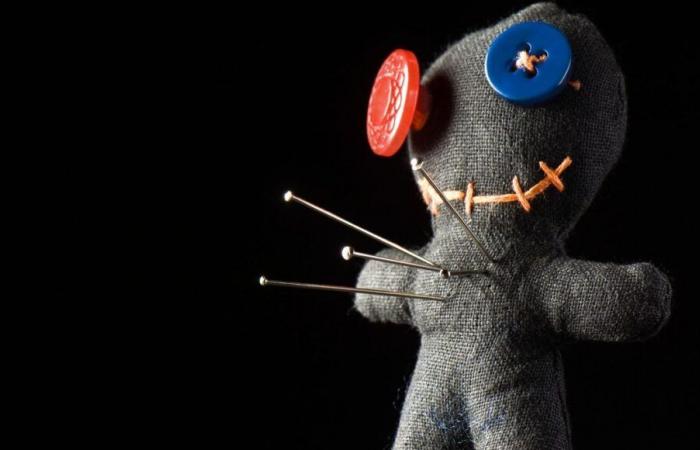Present in different cultures for a long time, zombies have invaded our literature, then our screens, they are now the stars of our video games. Who are the zombies? Is this just folklore or are there real zombies? What is zombification?
In Voodoo culture, criminals are punished by zombification. First, they are given a drug that slows their heart rate, then they are buried alive, then delivered. Zombified, they then became zombies. This whole story, and many others, are the subject of an exhibition at the Musée du Quai Branly: “Death is not an end?” until February 16, 2025.
Philippe Charlier is a forensic pathologist, anthropologist and curator of this exhibition and the author of numerous works on the subject. He also participated in the reconstruction based on a model of a death mask of the face of Robespierre, who had shot himself in the cheek, and was somewhat jostled when he was beheaded. Complicated work. The scientist also has the severed head of Henry IV available to study. A deadly job!
Man is fascinated by death and the afterlife
The Quai Branly exhibition is full. Why this ancestral fascination with the dead? “We are quite curious to know what will happen next, and we also like this permeability between the world of the dead and the world of the living. Whether it’s zombies this time, whether it’s ghosts, whether it’s werewolves eventually, vampires too. All these creatures who have one foot in life and one foot in death fascinate us. In my opinion, this is a way of answering the question of our own end quite simply.“
For the forensic doctor, it is also a question of taking a side step towards other civilizations, for example the Caribbean, Japan or sub-Saharan Africa.
The 6:20 a.m. guest Listen later
Lecture listen 6 min
Drugged, buried alive
Philippe Charlier himself was buried alive, to see. “I wanted to see what it felt like to be put in a closed coffin.“The anthropologist explains that when you practice your profession, it is important to sometimes slip into the skin of what you are studying, and for a forensic doctor, the coffin seems the most logical. He remained there for 1 hour 26 , “At least I knew I was going to get out, but those who are buried alive don’t know if we’re going to come looking for them, which is why zombification is a stronger punishment than death. It’s really scary because you feel everything, you hear noises around you but you can’t get out. But above all, it is impossible to move, to do anything about the pain that is mounting, or even the madness that is taking over you.”
Released under influence, into slavery
This Haitian practice comes from Africa, following the slaves brought to the Caribbean, the word “zombi” comes from Gabon and sometimes means “deity”, sometimes “spirit without body”. By crossing the oceans, the meaning was reversed to become “body without spirit”. Once dug up, the zombified person is reduced to slavery, an ancestral functioning according to the 17th century definition, the individual then works in the sugar cane fields in a comparable context but outside the white man’s slave system on the black men, enslavement of one person over another, zombified: “And it’s still the same thing now, we can really come across them in the side streets, and these are individuals who are in a sort of modern slavery.” We recognize them by a swaying gait, very very slow, perhaps the only point in common with the dd zombie films, “but it’s very very tenuous“.
The big workshop Listen later
Lecture listen 54 min
We explore this universe in the unique and very successful exhibition at Quai Branly, “ Death is not an end?“, open to all until 2025, children and sensitive souls included but be careful all the same with the room of the army of shadows where we find bones, skulls, a place that is a little frightening or exciting, it ‘is according.
How will the zombie become a living dead in the cinema?
What are the psychiatric consequences of zombification (if we survive)?
Immerse yourself in the zombie universe, real or fantasized, by listening to this show…
Chills Listen later
Lecture listen 14 min






